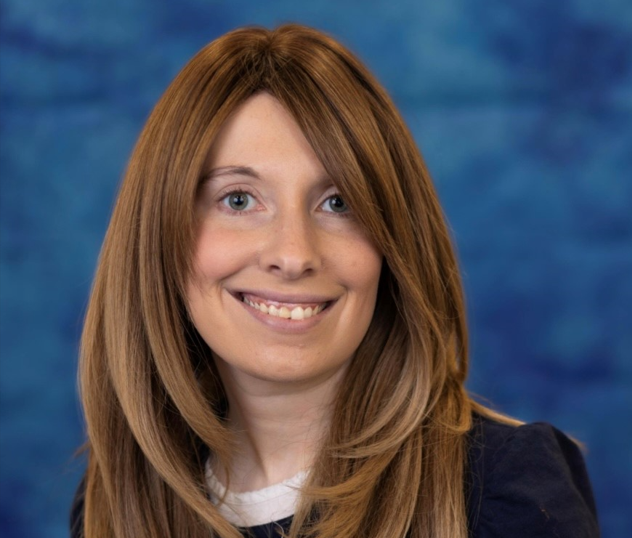Building Resilience in the Classroom
Graduate School of Jewish Studies (GSJS) Student Seeks to Help Her Students Get Comfortable Being Uncomfortable

Danielle Guterman, Elementary School Teacher and Legacy MidCareer Fellow earning her masters in Jewish History, shares the challenges and rewards of teaching and why educators need to learn history.
You’re currently working as an elementary school teacher at Hebrew Academy of Nassau County. Why did you choose Jewish education as your career path?
I have wanted to teach since childhood. I always knew that I wanted to help kids. As a child, I used to say that I wanted to be a pediatrician and in my waiting room, I’d teach kids who were missing school because they were sick. Logistically, that obviously didn’t make sense but it speaks to the sense of purpose I’ve always felt. There’s nothing like making children feel loved and cared for, while teaching them the importance of living a Torah life.
What do you see as the major challenges and rewards Jewish educators experience?
Some of the challenges: It’s really important for students to develop a sense of responsibility and grit. Unfortunately, parents today push back and want you to spoon-feed their children. They’re afraid that by challenging them, you’ll ruin their self-esteem (when really, the opposite has the potential to be true). Another challenge is addressing the fact that students are given such free rein with technology that they come to school being exposed to all kinds of images and messages on social media and possibly experiencing some behind-the-screen bullying. The instantaneous nature of technology also paves the way for shorter attention spans.
Rewards: Teaching students how to be lifelong learners—there’s such great satisfaction when they master or grow in a skill that they’ll need for life. It’s also so satisfying to see them grow in character. One area that I try to address in a multitude of ways is empathy. I connect it with everything we learn and find interactive ways to promote it.
What do you hope to gain, personally and professionally, from the MA in Jewish History Program at Touro Graduate School of Jewish Studies?
I think that it’s vital for a Jewish educator to have a deep sense of Jewish history. Understanding the Jewish experience throughout the centuries helps you to frame matters for students. It’s also incredibly important when you teach the oral law--helping students understand why different needs arose.
In your opinion, what are the key issues facing today’s Jewish youth and how can educators help?
Technology has tremendous potential to be a positive and negative influence on our children. We need programs on how to interact properly with technology.
Students today are struggling with anxiety as well. Educators need to be on the lookout for it and approach it with compassion. They’re exposed to so much before they can emotionally handle it all.
Teachers need to figure out ways to get our students comfortable with being uncomfortable and help them face challenges with less fear of failing and that may help minimize anxiety as well. I have to thank Rabbi Dr. Klammer, Touro professor, who is sharing great strategies in his Positive Psychology class.
What advice do you have for others entering the field?
Find a mentor or supportive group to be there for you on hard days, because they’ll inevitably come. Teaching is emotionally and physically challenging. It’s quite rewarding but it’s critical to make sure you have support on those really hard days. Also, when you do have “teaching victories,” hold onto them for rainy days. As an example, save an email from a student who shares what the positive impact you’ve had on her. That’ll help you on the days when you get an angry email from a parent whose child got an 85 on a test. Remind yourself of your mission so that even when you get pushback, you are confident in what you are doing.

